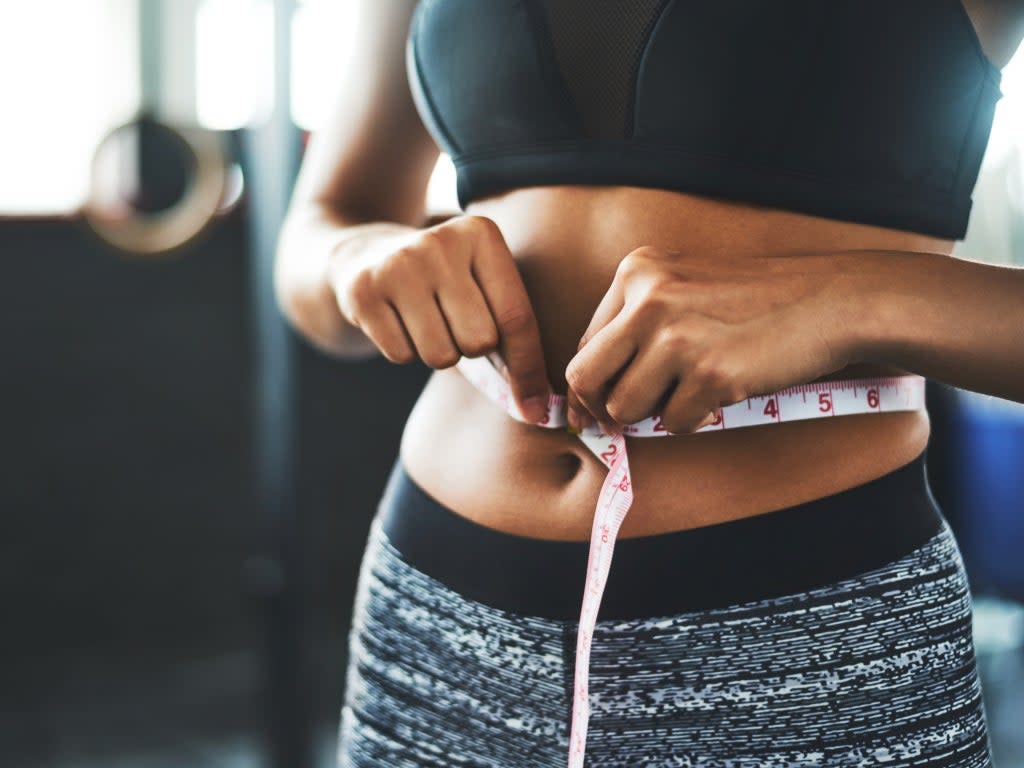Experts ‘concerned’ over new waist-to-height measurement guidance from NICE

Eating disorder charities and counsellors have expressed concerns over new draft guidance from the National Institute for Health and Care Excellence (NICE) which encourages people to make sure their waist measurement is less than half their height “to reduce the risk of potential health problems”.
In an announcement on Friday 8 April, NICE said professionals will be asked to encourage people who are obese to measure their own waist-to-height ratio.
The guidance aims to combat diseases associated with central adiposity – weight gain in the lower abdominal area – such as type 2 diabetes, high blood pressure, heart disease and stroke.
NICE said the measure can also be used in children and young people to predict health risks of such conditions.
While the guideline highlights the importance of healthcare professionals asking permission before having discussions with patients about their weight, and approaching the topic with sensitivity, eating disorder charity Beat said the measure could encourage harmful behaviours in people who suffer from an eating disorder.
“Waist measurements do not solely determine whether somebody is healthy or not, and we are concerned that calculating the waist-to-height ratio will encourage people with eating disorders to engage in harmful behaviours in order to lose weight or change their body shape,” Tom Quinn, Beat’s director of external affairs, told The Independent.
“We also know from the people we support that a fixation on body shape can contribute to an eating disorder developing for somebody who is already vulnerable to these serious mental illnesses.”
Harriet Frew, an accredited member of the British Association for Counselling and Psychotherapy is worried that the guidance could “exacerbate negative body image and perpetuate disordered eating behaviours”.
“People suffering from eating disorders will already focus disproportionately on their body image, as a measure of self-worth and may already be engaging in compulsive body checking behaviours daily,” she said.
“Encouraging a focus on the body in this way is unlikely to benefit or motivate someone around change in regards to a healthier relationship with food. Instead, it would likely intensify the eating disorder critical voice and the unhealthy focus and preoccupation on the body.”
It is estimated that in the UK, eating disorders affect 1.25 million people, of all ages, backgrounds and weights.
Beat is urging NICE to consider the impact on those affected when creating new health guidance and has advised that anybody who is currently unwell with a disorder should not calculate their waist-to-height measurements.
Encouraging a focus on the body in this way is unlikely to benefit or motivate someone
Harriet Frew, counsellor
Frew agreed, adding: “The psychological aspect of eating needs to be included in the solution for supporting people. Many people know ‘what’ to do, to benefit their health in terms of changes with diet and exercise.
“However, there are barriers to putting this into practice, particularly when food is used as an emotional soother; numbs from past trauma and life difficulties and has become a coping strategy.”
The change comes days after the government mandate that calorie counts should be labelled on restaurant menus next to food and drink items came into effect.
The new ruling means that cafes, restaurants and takeaway stores with more than 250 staff must print how many calories are in the meals on their in-house menus, on their websites and on any delivery platforms they may use.
The new rule was proposed by the government in May last year and is part of its wider plan to tackle the obesity epidemic and help people to make healthier choices. However, it was swiftly met with criticism, with some experts labelling it “dangerous and problematic”.
A 2019 Health Survey for England estimated that around 28 per cent of adults in England are obese and a further 36 per cent are overweight.
Current government estimates indicates that the current cost of obesity and illnesses related to it stands at £6.1bn.
However, one 2015 study from PwC estimated that eating disorders cost the NHS £4.6 bn.
Quinn said Beat will be providing feedback on the proposed guideline before the consultation ends in May.
The Independent has contacted NICE for comment.

